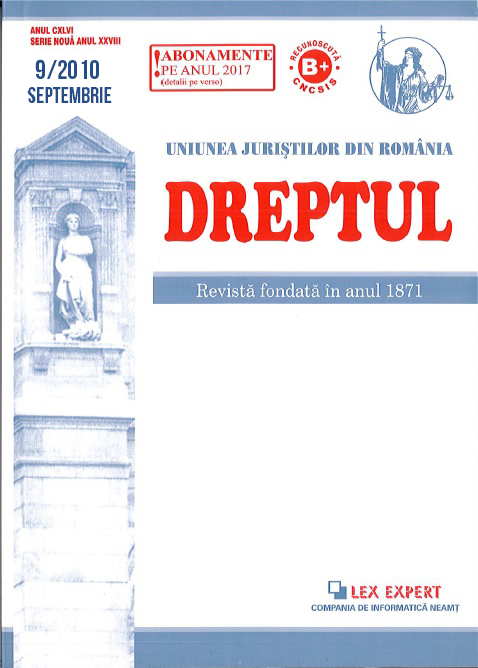The study brings to attention the distinction, but also the relation between the operation of trust and the contract of trust, as a means of achieving an autonomous patrimonial property with character of destination. After analyzing the substantive, form, content and registration requirements of the contract, as well as the opposability of the assets in the trust property, the study focuses on the significance of the acceptance of the contract of trust by its beneficiary, as well as the acceptance mechanism, when one of the contracting parties is beneficiary.
In the analysis of the prerogatives of the trustee’s property right as an effect of the contract, it is emphasized that this right is limited by the achievement of the purpose of the trust, found in the contract clauses and the duration of the contract, after which the trust property is subject to retrocession. The study tends to mark the distinction between the mandatary, term used or suggested by the regulation, and the position of the trustee in the configuration of the contract of trust, given that it concludes legal acts in the interest of the beneficiary and with an impact on the trust property.
In regard to the trustee’s obligation to return the trust property at the expiration of the term or the achievement of the purpose of the trust, it is analyzed the distinction between this legal obligation of the trustee and the sale contract with repurchase agreement. The study also focuses on the acts of disposition that the trustee can make on the basis of a proxy, in the process of exploiting the trust property, stating that this right can be exercised only on the components of this property, individually or as a whole, and not on the trust property, which must remain intact, as a fraction of a universality.
CONTRACTUL DE FIDUCIE
15.00lei


